Inclusion literature review
The connection between inclusion and violent extremism is an increasingly studied phenomenon, primarily by economists at the World Bank. The prevailing view holds that a lack of economic inclusion is the underlying driver for the experiences of injustice that drive young men and women towards violent extremist groups or ideology. These experiences of injustice will be discussed further, but there is far less consensus as to what level of “inclusion” prevents political violence.
In a social and economic context, inclusion is when people of a specific area can get the education, decent jobs, housing, and healthcare to live comfortably and participate in society as valued members of their community. Amartya Sen describes inclusion as “characterized by a society’s widely shared social experience and active participation, by a broad equality of opportunities and life chances for individuals, and by the achievement of a basic level of well-being for all citizens.”
[1] According to Robert Putnam, communities that are civically engaged build “social capital,” the way in which a society builds norms and associations that enhance individual productivity. In his landmark essay, he charts the decline of social capital in the American context by tracing indicators such as religious affiliation, voting, union membership, educational associations, volunteering. In a new democracy, this social capital can be essential to encouraging civic engagement in areas previously unaccustomed to participating in the democratic process
[2].
Exclusion is tied to violence because it produces frustrations that spur violence. The frustration of highly educated individuals is known as “relative depravation,” since these individuals are educated to a high-school or university level but hold serious grievances as they feel deprived of good jobs and high wages. Ted Gurr’s 1971 book Why Men Rebel argues that a country’s inability to realize the benefits of modernization can lead to anger among those whose livelihoods have not changed, and therefore lead to violence.
[3] This concept is carried forward by J.F. Bayart, who explains how “cadets sociaux,” young people without economic opportunities and not politically engaged, channel their relative depravation into radical politics. This phenomenon is exacerbated by young people realizing they cannot sustain or improve upon their parents’ way of life, a concept that explains violence among Tuaregs in Mali and Niger in the 1980s as well as violence among Middle East and North African immigrants to Europe.
[4] In fact, according to the World Bank, direct economic inequality was less of a driver of the Arab Spring as was dissatisfaction with the decline in the quality of life and inequality of wealth among middle class and wealthier groups
[5].
However, this decline was in many ways a result of excluding certain groups of people from wealth and power. Repressive governments in the Middle East relied on a social contract, known as the “authoritarian bargain,” by giving their citizens free public services in exchange for support. However, as time went on political control of the economy hampered the creation of jobs in the private sector while restricting growth in the public sector, leading to a breakdown of this social contract. The breakdown particularly affected the middle class, who found themselves getting poorer and poorer, facing a shortage of jobs, and a decline in government services and effective governance. Both the lower and middle classes felt shut out of profits gained by the few, large Arab companies. These were the grievances that spurred the revolutions and violence of the Arab Spring and are often echoed by violent extremists as their motivations
[6].
Unlike in other Middle Eastern countries where divisions fell largely on religious, tribal, and ethnic lines, in Tunisia divisions became apparent regionally. Tunisia’s development has largely favored its coast – interior regions and the south have significantly higher rates of poverty and unemployment, and therefore crime and political violence. According to one study, the Arab Spring started in Tunisia by jumping from community to community where the socioeconomic conditions were similar: starting from interior, underdeveloped regions.
[7] The World Bank assesses that youth not in education, employment, or training made up about 47% in these underdeveloped, rural areas. These youth were the most excluded, lacking access to many of the economic and educational opportunities afforded to residents of other areas of Tunisia, with women in these areas particularly excluded from the job market
[8].
In the Tunisian context, a person is included when they have gainful employment or education, are religiously accepted, politically represented in the capital, civically engaged in their communities, and not socially isolated
[9]. The Maghreb Economic Forum has used this term instead of exclusion to better define exactly what approach programmatic and government actors should take. This research will endeavor to verify these theoretical findings with focus group discussions, before assessing their impact on disengagement from violent extremism.
Therefore, this study considers defining the perception of inclusion is based on 6 indicators:
- Education
- Employment
- Civic Engagement
- Political Participation
- Religion
- Social acceptability
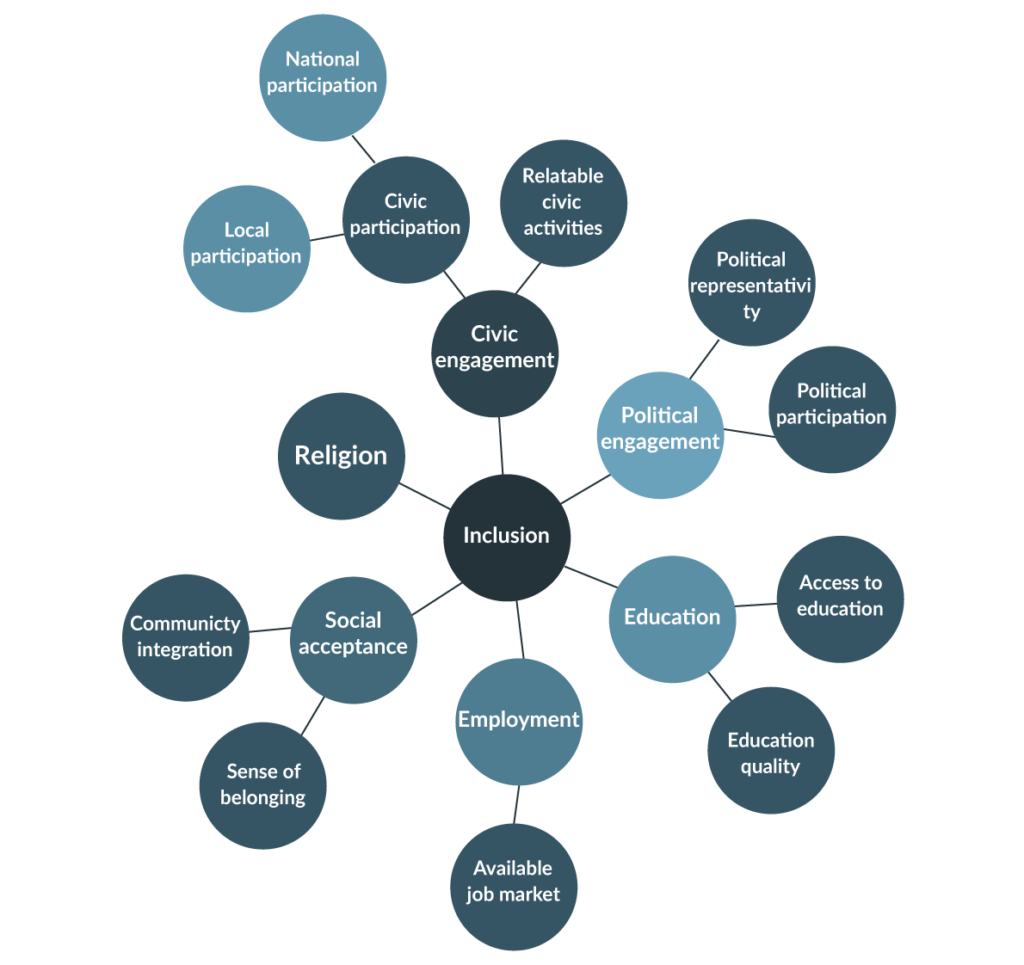
Figure 5 Aspects of inclusion indicators
Linking Motivations to join extremist groups to Inclusion
To a certain extent, studies, and experiences such as the Aarhus model implemented by the Danish government, which is based on dissecting the root causes of radicalization and target them by specific inclusive interventions tried to prevent youth from joining violent groups also to reinforce exit programs.
Inclusion is an approach to remedy certain root causes of radicalization which can be used to prevent violent extremism or/and deradicalize extremists.
As presented in the figure bellow, each indicator can stanch one or multiple root causes of radicalization proving that inclusion is one of the major factors to prevent radicalization and reinforce youth de-radicalization even
though, Experts, scholars and practitioners in several studies and key notes 78
confirm that mapping the link between the motivations or root causes of radicalization and the indicators of inclusion is as complicated as any psychological change that an individual can face. A simple mind map of the interrelations between each indicator and its effect on one of the root causes of radicalization can showcase the complexity but also the extent “Feeling Included” can affect the process of radicalization.

Figure 6 The links between inclusion and the root causes of radicalization
Connecting Inclusion to the root causes of radicalization is fundamentally based on the interrelations between the youth’s personal perceptions of psychological and societal concepts and the youth’s personal process of radicalization.
Linking inclusion and de-radicalization, or more specifically Disengagement, is a complex process and a multiplex exercise. The baseline of such a study is the comprehensive understanding of the feeling of inclusion among youth and the resonance of its components along with the root cause of radicalization. As many approaches try to tackle violent extremism through inclusion, the general understanding is missing a specific aspect which is the personal perception of inclusion and the personal experience of radicalization. Generalized strategies to prevent violent extremism and reinforce de-radicalization do not resonate with individualized concepts and perceptions.
Perception of inclusion
Education
Youth Perception
Tunisian youth, participants of the research perceive education as an ineffective social ladder step toward economic stability. Youth consider education more as a social obligation while being convinced that neither the educational system nor the education infrastructure in their community are inclusive. The stigma of being educated in an “excluded” region of Tunisia is already affecting employment rates but most importantly youth own feeling of inclusion. Education is perceived as a tool to a specific goal, the concept of being educated thus cultivated is no longer significant to youth’s personality or mindset, thus, to feel included, youth proclaim that education must lead to gainful employment.
A feeling of distrust in the educational system in Tunisia comes from the youth’s own experience and observations of the local educational institutions. Although in the three governorates of Tunis, Tataouine, and Kasserine, participants have access to primary, secondary, and higher education, stigma has been affecting the integrity and the quality of education in a way that the stigma is repelling high-caliber and first-rate educators and manpower.
This generated a decline in the global educational system in marginalized regions, and most importantly, it generated a feeling of exclusion and a deep sentiment of injustice among citizens.
Radicalized individuals’ perception
Among radicalized individuals, education is perceived as a way of enlightenment and a tool to gain power and influence the community. Education is not a path towards employment, it is defined more as a spiritual nurture and a comprehensive life teaching.
“No more pain. So you can be content with yourself. That is the whole point of the learning. Our teachng is about learning to find peace within and find inner joy. One cannot found peace or joy until he has learned and understood the Quran.”
The in-depth interviews with the radicalized individuals shed the light on the importance of the greater role of education and how extremists used religious teaching as a holistic way of sharing knowledge and training people to survive while aspiring for an absolute enlightenment afterlife. Contrarily to the classical education system and even education in the Islamic state institutions, acquiring knowledge among violent extremist groups is very accessible since it does not rely on curriculums, it is mainly based on indoctrination and reading and examining a series of books and manifestos written by several trustworthy conservative Muslim teachers and ideological schools.
Disengaged individuals’ perception
On the other hand, disengaged individuals considered education as more of a comprehensive process that is more open to science-based teaching and focus more on the day-to-day aspects of life experience.
In contrast with the perception among radicalized individuals, education is no more centered only on spiritual nurturing. Education is including tutoring, pieces of training, and coaching.
While the above is crucial, the most important thing is the source of information, the radicalization experience, and the “doubt phase” of de-radicalization/disengagement process exposed how critical the trustworthiness of the source of information is in building knowledge and forging convictions.
The interviewees insisted on the importance of any practical discipline along with classical education because of the self-satisfaction they needed and felt upon leaving violent extremist groups.
“If I knew, I would have drop out from school and learn carpentry, nowadays we need to teach kids practical skills because a decent life is something you work hard for.”
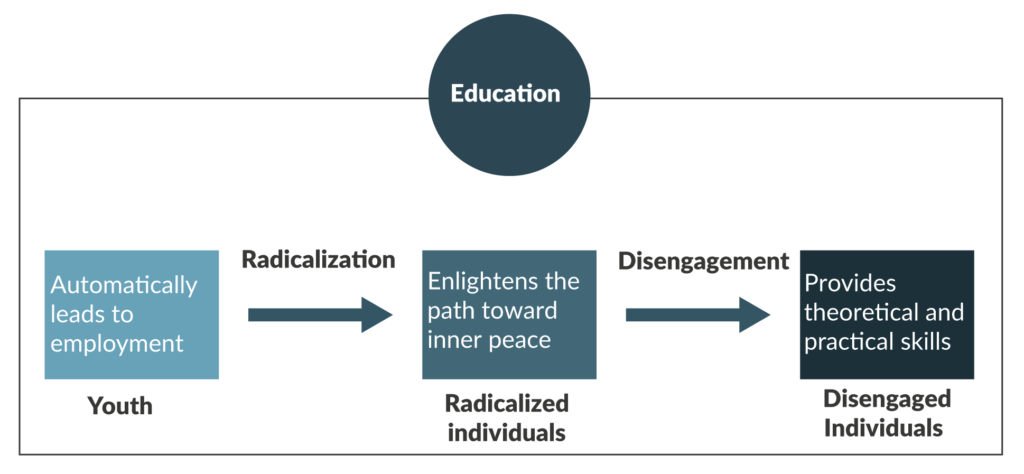
Figure 7: The perception of education among the research subjects
Employment
Youth Perception
Young Tunisians identify employment as having a gainful local job market and the opportunity to have local private investments.
They believe that being economically included depends on gainful employment (or to be gainfully employed) which refers to having a stable, full-time, steady job that pays enough to sustain a decent life without a struggle, or where you are slipping behind despite working. It also refers to a profession that you find satisfactory, gratifying, and significant, and that gives you self-respect as well as the respect of people who are important to you. This perception is valid only if the local job market and local investment are offering such opportunities. The ability to have gainful employment in their community is as important.
Another understanding from the focus groups is that employment is strongly tied to the education of oneself, considering oneself employed depends on the fact that the job is a direct result on one’s education. In some cases, individuals consider themselves unemployed even though they currently have a job, the difference is that the actual job is not related to their higher education. Tunisian youth, especially young graduates, are not attracted to informal jobs and often prefer to continue looking for formal employment that meets their expectations rather than settling into informal employment. And when they agree to work in the informal sector out of necessity, it is without satisfaction and considering that their transition to employment is not complete. Some, and there are many, give up and leave the labor market. They will never consider their selves in a position of gainful employment.
“I have studied biology for 6 years and here I am teaching math to hign schoolers.”
Radicalized individuals’ perception
For radicalized individuals, although denying any pursuit of a wealthy life, radicalized individuals believe that religious-based ideology is the only means to live a decent life (gainful employment). However, their perception of a decent life is defined as becoming as wealthy as possible and that comes as an automatic gratification from God.
The purpose of work is to provide for the group and support its needs. Working must be exclusively with comrades and/or conservative religious individuals except in case of deprivation and urgence, one is allowed to trade with non-believers.
Disengaged individuals’ perception
Disengaged individuals understanding and convictions differ from the latter perception whereas, they believe in work ethics importance to reach successful economic stability and, probably coming from the trauma they are experiencing, they consider that working is the only occupation that can keep their focus and regain a sense of dignity and self-satisfaction. Two of the disengaged interviewees already started practical training to gain technical skills to start new careers while the others are still actively looking for a job longing for a sense of stability and a low-profile lifestyle.
“I’m woking 14 hours a day and I’m happy. I still have that voice in me guiding my action as pleasing to God”
Female participants showed a shift in their perception of working, they turned from believers in the exclusive role of women to support their family and community to becoming desperate for self-accomplishment and independence regardless of parents or husbands’ support.
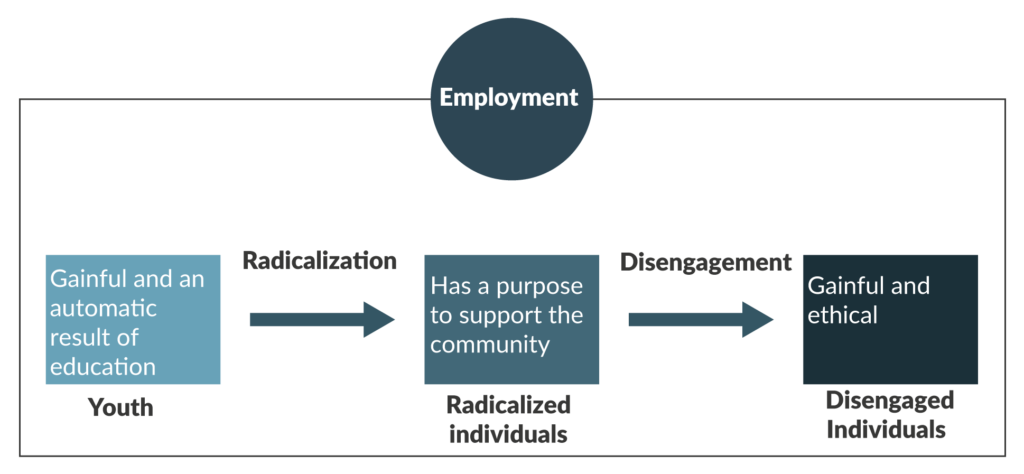
Figure 8: The perception of employment among the research subjects
Civic engagement
Youth perception
Civic Engagement is providing a sense of belonging to the community of youth and helping them maintain personal and professional skills. Craving for change, civil society is considered as the ultimate space for youth to expand their knowledge, develop a sense of self-accomplishment, and politically engage in their community.
However, the youth did express a deception in the Tunisian civil society due to how organizations are perceiving youth as a target population and not a participant in the decision-making process.
“Our local civil society is trying but, you know, the system is always blocking.”
Radicalized individuals’ perception
Among radicalized individuals, civic engagement is perceived as social work led by the chosen. The word engagement is not appreciated since it includes an aspect of criticizing. The only acceptable participation/engagement is following the directions of the leaders.
Following the leader’s guidance, “brothers and sisters” perform social work with a strong sense of devotion and integrity. Interviewees admonish modern societies for neglecting such values in building a prosperous community.
Disengaged individual’s perception
Disengaged individuals believe that civic engagement is preserving the social contract through focusing on individual actions. Possibly a manifestation of trauma, interviewees repel organized action and groups to support communities or undertake social work.
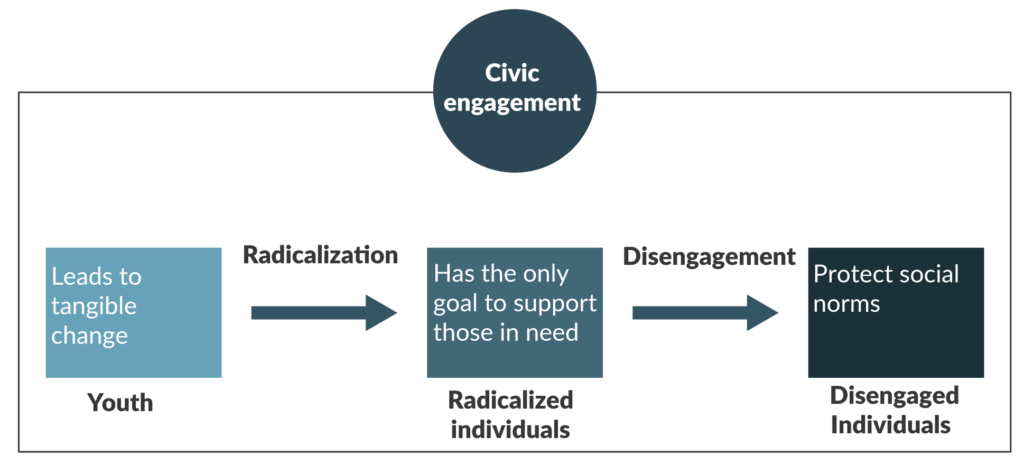 Figure 9: The perception of civic engagement among the research subjects.
Figure 9: The perception of civic engagement among the research subjects.
Political participation
Youth perception
Youth participants expressed a lack of interest in conventional political activities. They have lost faith in the political institutions in the country and the system. They had high expectations after the revolution which the political elite failed to meet. New ways of channeling their political activities have strongly emerged such as joining student unions or participating in civic activities. Other issues have been raised, such as legal discrepancies. Some of those who were willing to engage in political events faced problems such as registrations and logistics.
While the political situation is unstable and unpromising, youth almost repel any involvement in the actual classical political system. However, surprisingly, the youth did have thorough reflections on the political situation in Tunisia and are well informed on legislations, governments, and public institutions.
Radicalized individuals’ perception
For radicalized participants, politics are summed up in the pledge of allegiance to choose the Khalifate or, in smaller groups, their leader. No political activity is allowed since it is perceived as a tool to divide the Ummah (Nation). Despite the conviction that the only sovereign political system is Sharia, radicalized individuals strongly refute any political discussion unless discussing foreign policies or criticizing democracy or any other political ideology.
“God asked humans to follow his law; the only politics that are valid everywhene and in all times.”
Disengaged individual’s perception
Disengaging from violent extremist groups means disengagement from any political activity; a conclusion proving that disengaged individuals became conscious about the political ambition and aspects of the extremist ideologies. However, the sense of apathy in the interviewees statement regarding their perception of politics and political participation may be a sign of confusion and a state of denial. However, participating in democratic manifestations such as elections is perceived as important in a way to prove citizenship and acquire a sense of belonging.
“I’ll be happy to vote, it is my obligation”
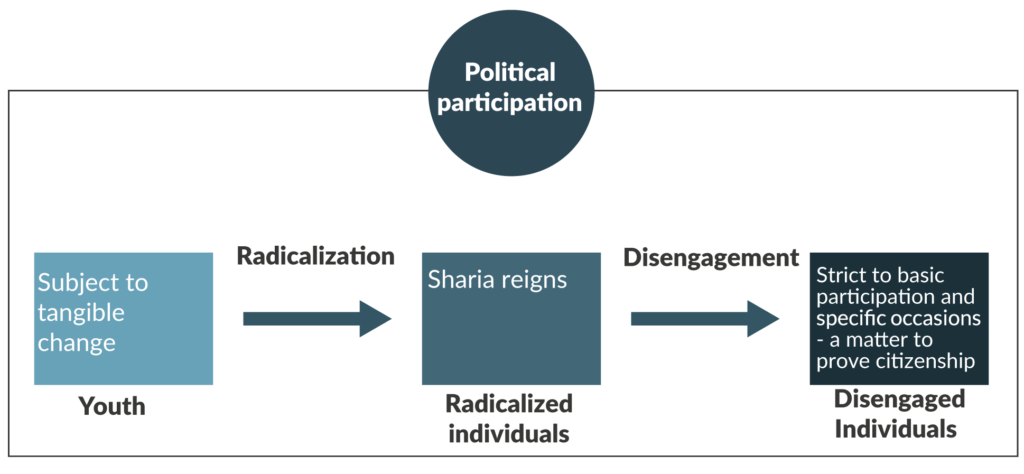
Figure 10: The perception of political participation among the research subjects
Social Acceptance
Youth Perception
Social Acceptance is defined as having the support of family, friends, and the community. This sought support includes most specifically respecting the youth’s desire for change to overcome some limitations imposed by social norms and traditions.
“In high school, they even denied our request to create a music club.”
On the national level, social acceptance is a more generalized perception, meaning the community, as a whole, is socially accepted among other groups or populations. Stigma plays a key role in the process of Social Acceptance; The absence of stigma from other regions and media is important to reinforce integration and to fortify the sense of belonging to the national community.
Most of the participants expressed their pride to be part of their local communities as well as their regions. They talked about the perks of belonging to these communities and the importance of developing their own regions. However, when they were asking about the difference between living inside and outside their communities, said that the only difference is people’s perception of them. They said that they feel excluded within other communities not because they have better living conditions but rather because of the stigma they sense from people from other communities. Therefore, the research team has concluded that “stigmatization” is an important factor in deepening the feeling of exclusion.
Radicalized individuals’ perception
Radicalized youth are in total escapism from their social status and environment.
Their perception of social acceptance is inexistent (outwardly), denying any interference from their environment and considering any social circle as an impediment to one’s inner peace. Although in studying their trajectories, craving for belonging to the group has been proved through their obedience to leaders in fear of rejection, reflecting on their experience before joining the violent extremist group.
When asked about social acceptance, interviewees explain their own position towards others in terms of accepting their environment and communities.
Disengaged individual’s perception
Disengaged youth are more conscious about whether their social circles (family, friends, community…) are accepting them. Like the importance of social acceptance among youth, returnees and disengaged individuals are more aware of the need to be accepted amid their communities.
The progressive isolation experienced during the process of radicalization was questioned during the de-radicalization/disengagement process of violent extremists. Disengaged individuals are not craving acceptance as much as progressive reintegration into the community.
“I can see the unconfortable looks of everyone here but I just wanna be next to my family, I’d do everything to take care of my parents.”
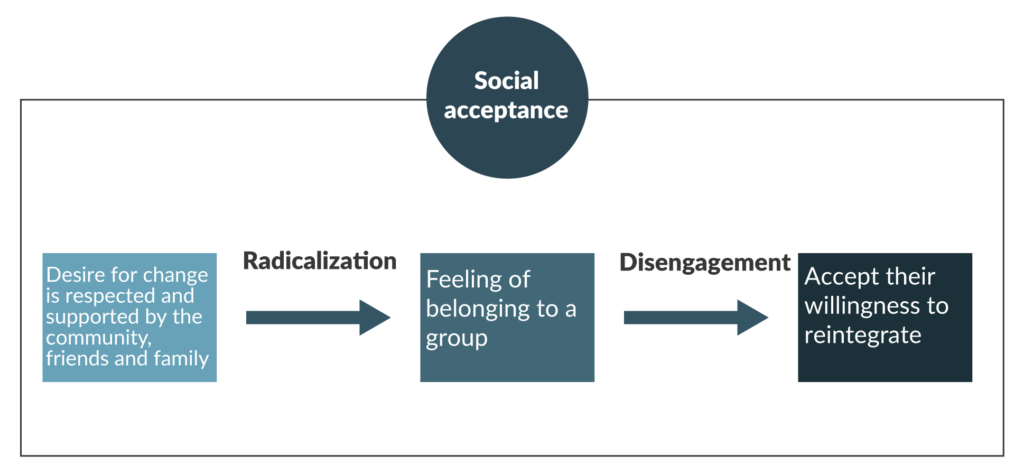
Figure 11: The perception of social acceptance among the research subjects
Religion
Youth perception
Testing the religious acceptance within the targeted communities, the research team has discovered that within these regions it is more about conservatism than religion. The participants shared; those social norms and traditions are an important aspect within their communities. They claim that people tend to care more about socially conservative norms and traditions. The participants claim that religion is important, but not as important as cultural heritage and practices. One participant said that girls within her community are expected to “cover their hair” when they hit puberty because of social norms and tradition. She explained that people within her local community do not care whether you are practicing [Religion] or not, all that matters for them is that you should always abide by the social norms.
“I try my best not to spend ramadan here with my family, you know, I have to fast here, everyone fast ramadan here.”
Religion might have influenced these social norms and traditions, however, within these targeted communities, social norms and traditions are vital for social inclusion.
Radicalized individuals’ perception
On the other hand, radicalized individuals believe with sharp conviction that religion (Islam) is the savior and the only teaching of prosperous balanced life. Religion should be a way of living replacing any national, local, or ethnic traditions or social contract.
“God has giving us islam to follow, in our daily life, actions, relationships and morals. In hard times, I find my salvation in Quran.”
Disengaged individual’s perception
After disengagement, the perception of religion became specific to personal experience. It is still a teaching of a prosperous and balanced life; however, it can only affect one individual depending on his life experience and convictions. Disengaged agree on the importance to understand that religion (Islam) is a personal spiritual relationship with God and that the social contract includes religion and should not be limited to it.
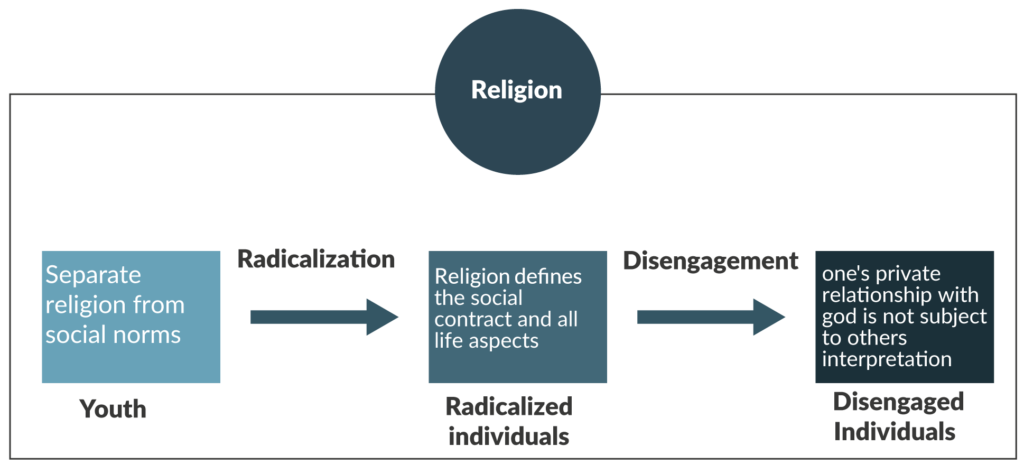
Figure 12: The perception of religion among the research subjects
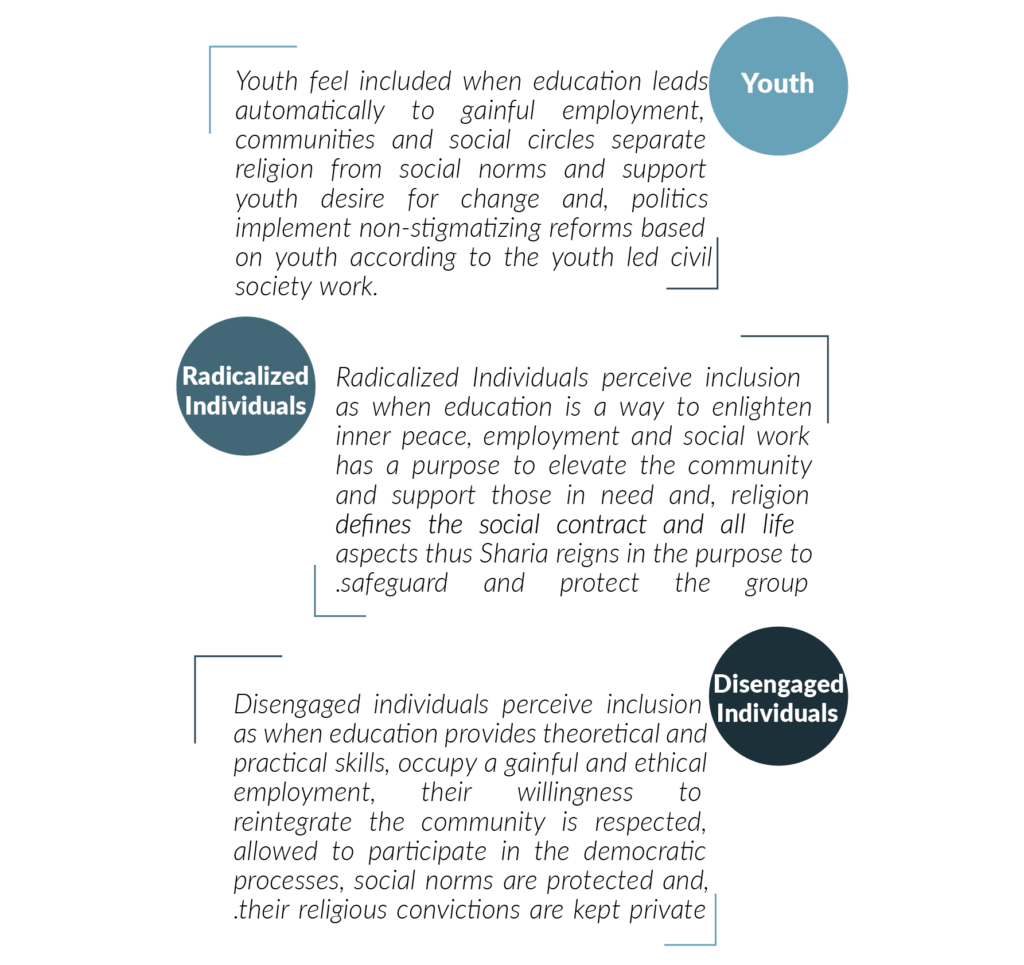
Figure 13: The perception of inclusion among the research subjects
Amartya Sen. Development as Freedom. Anchor Books, 2000
[2] Robert Putnam. “Bowling Alone: America’s Declining Social Capital.” Journal of Democracy 6:1, January 1995 (65-78)
[3] Ted Gurr. (1971) Why Men Rebel? Princeton: Princeton University Press
[4] Jean-François Bayert. L’État en Afrique. La politique du ventre. Paris, Fayard, 1989 (2e édition augmentée, Fayard, 2006)
[5] Inequality, Uprisings, and Conflict in the Arab World.” World Bank Group, MENA Economic Monitor, October 2015.
[6] Inequality, Uprisings, and Conflict in the Arab World.” World Bank Group, MENA Economic Monitor, October 2015.
[7] Egel, Daniel and Garbouj, Malek. “Socioeconomic Drivers of the Spread of the Tunisian Revolution.” RAND Corporation and the Graduate Institute, Geneva. February 27, 2016.
[8] Breaking Barriers to Youth Inclusion: Tunisia.” World Bank Group, 2014.
[9] See appendix 5 for an assessment tool of inclusion in the Tunisian context.
 Figure 9: The perception of civic engagement among the research subjects.
Figure 9: The perception of civic engagement among the research subjects.











